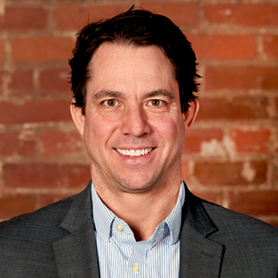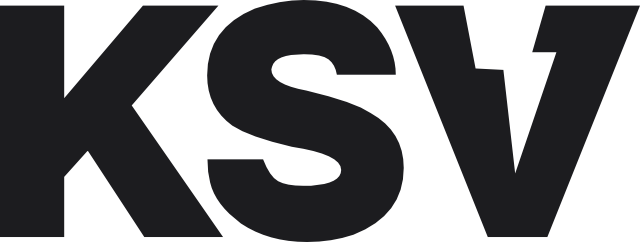Happy New Year!
We’re excited to kick off 2021 with our first Industry Expert Interview of the year. Last fall we had the opportunity to chat with Chad Farrell, the CEO and Founder of Encore Renewable Energy, an innovative, integrated clean energy services company. Encore also happens to be a fellow Vermont-based certified B Corporation. 
Check out our full conversation below:
KSV: When did Encore become B Corp certified, and what was the process like for the company?
Chad: Encore became a B Corp in 2016. We were recertified in 2018 and we were able to improve our score as a result of that recertification process, which was really empowering. Becoming a B Corp was about codifying our underlying culture that has existed since day one, so I think it was a natural progression for us. It was nice to have a process that we could measure moving forward in terms of these numerical scores around what and how we're doing socially, environmentally and financially.
We get recertified again this year, and the goal will be to improve and continue to exist within the best of the B Corp companies in terms of our overall scores. We're not scoring like Patagonia, but we're scoring like Ben and Jerry's, which feels like a real positive.
KSV: We noticed that Jerry (Greenfield, of Ben and Jerry’s) is on your board of advisors. Was that before the B Corp certification or was that just consequential?
Chad: Well, before we were a certified B Corp, we were members of the Vermont Businesses for Social Responsibility. I was fortunate to get to know early leaders of that movement here in Vermont, including Jerry Greenfield, Ben Cohen, Jeffrey Hollender, Will Raap and others. They, and other leaders in the space, really served as mentors to me early on and helped me better understand the value of running a mission-driven business.
Early on, Jerry invested in a project where we needed some development capital, and he was willing to take that risk with us after spending time with our team and understanding the project and our approach to project development. So really, we got to know him on a professional level and then asked him subsequently to join our board of advisors in 2016. Will Raap (founder and chairman of Gardener's Supply) is also an investor in Encore, but both of those gentlemen sit on our board of advisors and help keep us focused on the importance of the mission-driven element of what we do.
KSV: That’s fantastic, Overall, how would you say that being a B Corp affects your day-to-day operations?
Chad: I would say it's everything really, from how we source materials to how we engage with members of the communities in which we operate to how we care for our employees. Again, it's really helpful to have a set of guiding principles that we can refer to, and other companies that we can work with, to get additional ideas as to how to become more socially progressive. I also think that it’s a competitive advantage. We're in a race for securing the best talent possible. Fortunately, in the renewable energy world we are attracting some really impressive talent, especially among the younger generations. Being a B Corp has helped differentiate our company from some of our competitors.
KSV: Speaking of differentiators, what else do you think really sets you apart in the renewable energy space? Vermont is highly concentrated when it comes to B Corps, but it's also highly concentrated with green and renewable energy companies.
Chad: There are three things that immediately come to mind. The first is what I just mentioned, which is our culture and our team… We try and get a better sense for who we each are as human beings, and how we want to be approached, and how we want to be communicated with. There's been a real firm investment into our culture and that continues to this day and will continue as we grow.
I'd say the second thing is our passion for innovation. The renewable energy development business is a whirlwind. We don't call it the solar coaster for nothing. Things change from a policy and regulatory perspective, from a technology perspective, from a financing perspective all the time. We realized that Encore cannot just be a solar development company. We need to be a renewable energy development services company. That's going to include bringing energy storage to bear, understanding all the controls that are required to maintain production from intermittent generation technologies like solar and wind. The industry is innovative, and the winners, I think, are going to be defined by their ability to continue innovating over what's going to be just a crazy next 10-15 years.
The final differentiator that comes to my mind is our access to capital and, specifically, a low cost of capital. Our CFO and President comes from the investment banking industry, so finance runs in his veins. He's super creative when it comes to deal structuring, and that often results in mutually beneficial outcomes, which drives the velocity of Encore’s business. He's been great at maintaining relationships with all the various capital partners that we need to do our work, and if we can bring low cost capital to the table, we can do a lot of good projects.
KSV: On the note of not just being a solar company, but being more of a renewable energy development company, do you think that there is a level of awareness by businesses who are looking to transition to clean energy of the need to go beyond just putting solar panels on the roof or solely investing in carbon offsets?
Chad: Yes, I do. I think a lot of this has been driven by corporate interest in renewables. This comes from some of the larger corporations out there, Apple, Facebook, Microsoft, Google. They have massive data centers with huge electrical demand requirements. It's interesting because if you peel back the onion, they're doing these projects for economic reasons, but then they're able to market the heck out of themselves as a result of doing these projects. I think all these institutions know they need to do this for economic, social, and environmental reasons and they're looking to us in the industry to be able to provide a turnkey solution for them. Basically, to take all the risk on developing the project and deliver for them a fully functional asset, an asset related to something that they don't have expertise in.
KSV: That makes total sense. Your website describes Encore as taking a “proactive approach to create harmony between the natural and built environment to foster sustainable economic growth, environmental awareness, and community enrichment.” Can you talk a little bit about what that looks like when you're trying to paint the picture for prospective or current clients?
Chad: At the end of the day we are in the business of creating renewable energy assets. These assets definitely have a footprint… in the case of community scale solar, sometimes a rather large footprint. So, we strive to find the right sites from an environmental perspective, from an aesthetic impact perspective, and from an engineering perspective, meaning interconnection and grid capacity. But at the end of the day, we do realize that our work requires a change to the existing landscape in some way and we want to do what we can to minimize those impacts… we look for landfills, brownfields, parking lots, rooftops, these types of undervalued/preferred sites that result in less impact to green field environments or undeveloped land that could have a higher, better use, could be houses, could be agriculture.
I'd say some other examples include providing "above what is required" landscaping for screening purposes. We would like to be known as the company that is developing and constructing the most aesthetically pleasing solar projects out there. We're doing that in many instances by finishing our projects with pollinator-friendly ground cover that consists of wildflowers and other native pollinator-friendly plantings. We’re adding landscaping along vantage points to improve project aesthetics. We recognize that we are going to alter the landscape in some fashion, and we want to seek to minimize those impacts when possible, all the while knowing that we're always going to be making an impact.
KSV: Let’s shift gears a little bit. The pandemic has played such an important role in everybody's day-to-day life, both locally and of course on a global scale. How has it specifically affected Encore?
Chad: I know we're not unique here, but I'd like to begin by saying, we recognize that we're really fortunate to be in the field that we're in, doing the work that we're doing. We can work remotely…we have people that live all over the place and my attitude has always been that I just want people to be productive. I don't need to see you, although it's nice to see you. I don't need you to be spending two hours in a car commuting to an office so that we can have two conversations. We can do that on the phone, and now we can do it over Zoom. And I guess to add to that, we build large solar projects and large battery storage projects which is about the most socially distant construction activity that I can think of. So really there was some initial impact to some of our project construction efforts early in the pandemic, but I think pretty quickly governors and legislative leaders around the region realized that if we could keep building solar projects safely, we should. So we have been able to do that, which obviously is not the case if you're in the hospitality industry or if you're in the tourism industry or another industry that's been just hammered by this pandemic.
But I would say there are definitely challenges… working remotely and maintaining those interpersonal relationships through a video screen is not easy. Humans thrive on connection and our connections have been challenged. Specifically, as CEO, I've had to get educated around how to create opportunities for active socialization and manage this challenge as effectively as possible.
KSV: It’s definitely an evolving process. So, what do you think success is going to look like for businesses as we look ahead? Customers are changing the way they spend their money, changing the way they use energy, changing the way that they live. What does that mean when it comes to defining success?
Chad: I've been really encouraged over the last couple years about the shift from shareholder capitalism to stakeholder capitalism. Obviously, we need to manage the bottom line and try to be as profitable as possible, but we need to also do so in a way that respects the human condition, that respects the planet. And we are beginning to see a direct tie to profitability from a focus on sustainability, diversity and triple bottom line outcomes. So I’m excited to see businesses trying to improve upon social and environmental goals, and trying to become more focused on the ability for business to be a force for good.
--
Thank you so much, Chad! Stay tuned as we continue this series - and these incredible conversations - throughout 2021.
